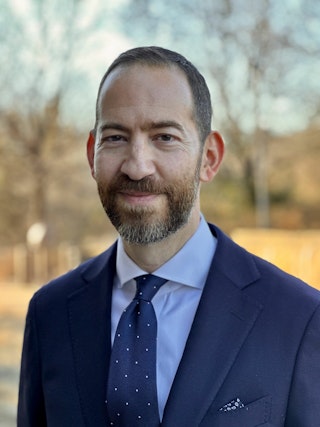Editor’s Note

Long before each new U.S. president and Congress take office, a frantic effort begins among staffers, pundits, and would-be advisers to define what policies the officials will actually pursue. Promises made by candidates during a race are only ever a partial guide, since as onetime New York Governor Mario Cuomo famously explained, “You campaign in poetry, but you govern in prose.” (Or as the boxer Mike Tyson put it in pithier terms, “Everyone has a plan till they get punched in the mouth.”)
Every two years, we at the George W. Bush Institute undertake a major effort to help inform the process, offering up our best advice on the policies most likely to uphold the values we champion: freedom, opportunity, accountability, and compassion. We then present those policy recommendations to the public, Congress, and the White House. You can find our latest set of policy briefs here.
For this issue of The Catalyst, we decided to make all that work available to our readers as well, since the topics it touches on are so important and this moment is so critical. But fear not – we don’t expect you to wade through a set of dense policy papers. Much as we aim to make The Catalyst a safe space for wonks and nerds – just visit our offices and you’ll see what I mean – we know that not everyone is as excited as we are by the minutiae. So my colleagues and I held a series of interviews with the authors and advisers who helped form and inform the briefs. What follows are those conversations, in video and Q&A form.
The issue leads off with a discussion I held with Victor Cha, Senior Fellow at the Bush Institute, on America’s toughest foreign-policy challenge: how to confront the strengthening axis of authoritarian states led by China, Russia, Iran, and North Korea. Next up you’ll find a fascinating interview with Laura Collins, Director at the Bush Institute-SMU Economic Growth Initiative, on immigration, one of the recent campaign’s most polarizing issues. In our talk, Collins goes far past the headlines, arguing that instead of just focusing on illegal border crossings, Washington needs to modernize its system for legal migration if the country hopes to build a true 21st century economy.
Returning to foreign policy, you’ll find a conversation about Ukraine I recently held with two of the Bush Institute’s top experts – Igor Khrestin, the Bradford M. Freeman Managing Director of Global Policy at the Bush Institute, and David J. Kramer, Executive Director of the Bush Institute – on how to end the war there and secure the country’s future. This discussion is followed by a talk with Antonio Garza, a former U.S. Ambassador to Mexico, on how the Trump Administration should engage with Latin America in a nuanced and individualized manner, which would reap the biggest rewards for all the countries involved. Jendayi Frazer, a former Assistant Secretary of State for Africa, makes a parallel argument about the 54 different countries that make up that continent – countries that stand on the edge of a demographic and economic boom yet have been neglected by the United States for far too long.
We then return to domestic policy with three smart takes: on the housing crisis (a Q&A with Henry Cisneros, former Secretary of Housing and Urban Development, and Cullum Clark, Director of the Bush Institute-SMU Economic Growth Initiative); on the need to maintain objective assessments and accountability in public education (with Carey M. Wright, Maryland’s superstar Superintendent of Schools); and on how to help current and former members of the U.S. military make the important but difficult transition to higher education (with LeNaya Hezel, Chief Programs Officer at the Warrior-Scholar Project).
The United States faces enormous challenges in the months and years ahead, and virtually all recent media coverage of current affairs stops there. But the United States also possesses enormous advantages. If Washington can figure out how to apply the latter to the former, the country’s future looks far brighter than the doomsayers would have you believe.
As always, I look forward to your feedback.
The Catalyst believes that ideas matter. We aim to stimulate debate on the most important issues of the day, featuring a range of arguments that are constructive, high-minded, and share our core values of freedom, opportunity, accountability, and compassion. To that end, we seek out ideas that may challenge us, and the authors’ views presented here are their own; The Catalyst does not endorse any particular policy, politician, or party.

